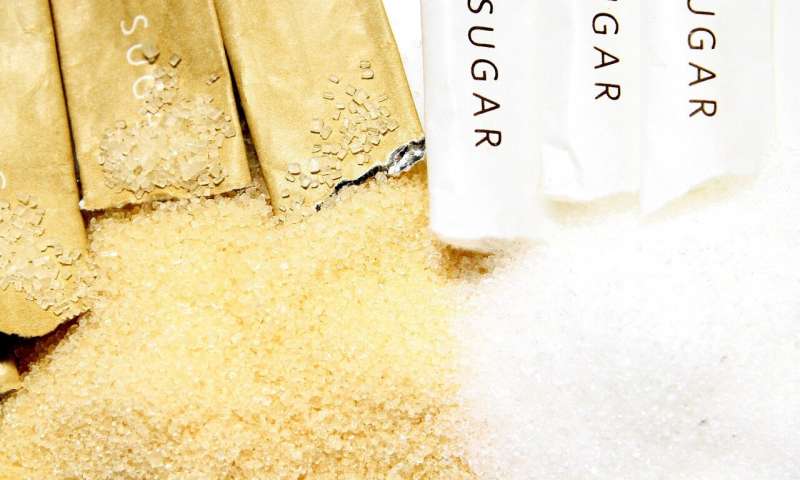Higher intake of free sugars—added sugars and those naturally present in honey and fruit juice—is associated with a higher risk of cardiovascular disease, reports a study published in BMC Medicine. The findings strengthen the evidence for the global dietary recommendation to reduce free sugar consumption to below five percent of total daily energy.
Rebecca Kelly and colleagues analyzed data from 110,497 individuals from the UK Biobank who had completed at least two dietary assessments. The researchers tracked individuals for approximately 9.4 years, and during this time, total cardiovascular disease (heart disease and stroke combined), heart disease, and stroke occurred in 4,188, 3,138, and 1,124 participants, respectively.
The authors found total carbohydrate intake was not associated with cardiovascular disease outcomes. However, when looking at the types and sources of carbohydrates consumed, they found that higher free sugar intake from foods such as sugary drinks, fruit juice and sweets was associated with increased risk of all cardiovascular disease outcomes. For each 5% higher total energy from free sugars, the associated risk of total cardiovascular disease was 7% higher. The authors found that the risk of heart disease was 6% higher, while the risk of stroke was 10% higher. Additionally, consuming five grams more fiber per day was associated with 4% lower risk of total cardiovascular disease, but this association did not remain significant after accounting for body mass index (BMI).
The authors suggest that replacing free sugars with non-free sugars—mostly those naturally occurring in whole fruits and vegetables—and a higher fiber intake may help protect against cardiovascular disease.
The authors conclude that not all carbohydrates may be associated with an increased risk of cardiovascular disease and that it is important to consider the type and source of carbohydrates consumed when researching cardiovascular health.
BioMed Central


